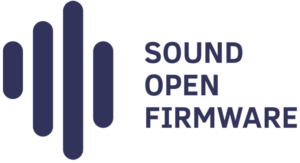SOF 2.0 includes the following features:
- Performance improvements in copy functions for most components with less memory access. Some processing code paths improved by up to 40% fewer cycles than v1.9 with the same audio quality.
- Stability improvements on multi-core support on Intel cAVS platforms which can now support running dynamic pipelines on any DSP core.
- Zephyr RTOS is now used instead of XTOS for community release for the Apollo Lake (APL) platform. Zephyr integration has reached feature parity on several Intel platforms. This has led to a lot of code simplification and reductions in the SOF application code with more integration planned for v2.1.
- Support for basic playback and capture now on certain Tiger Lake (TGL) Windows-based devices via the IPC4 protocol.
Learn more about the release here.



